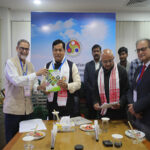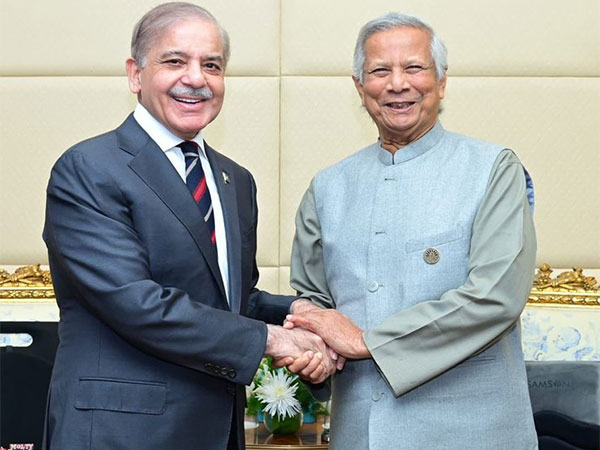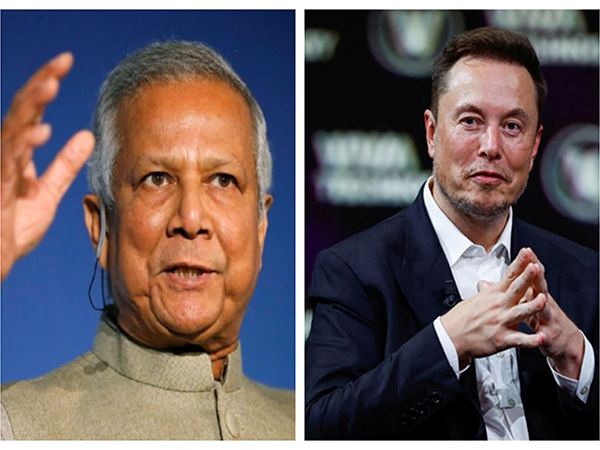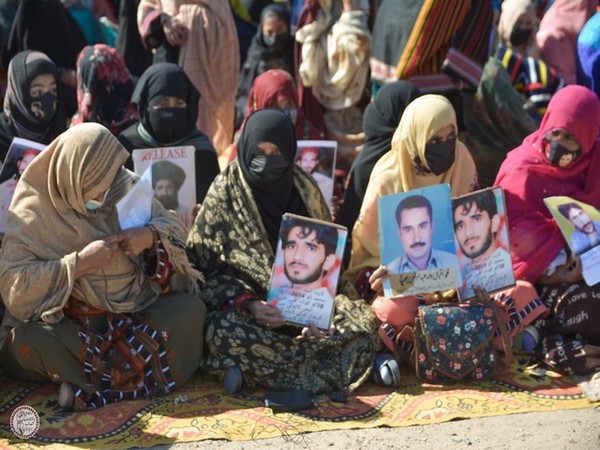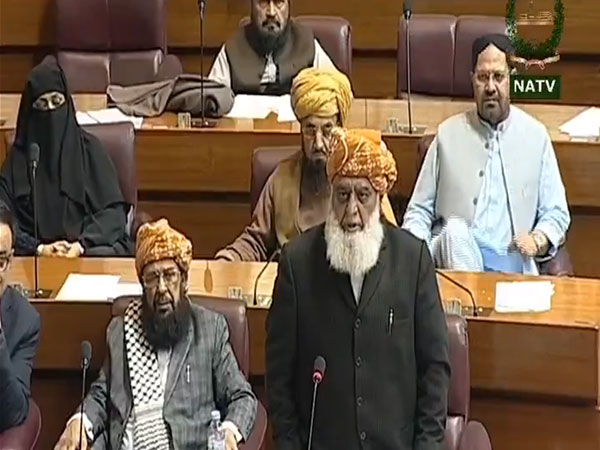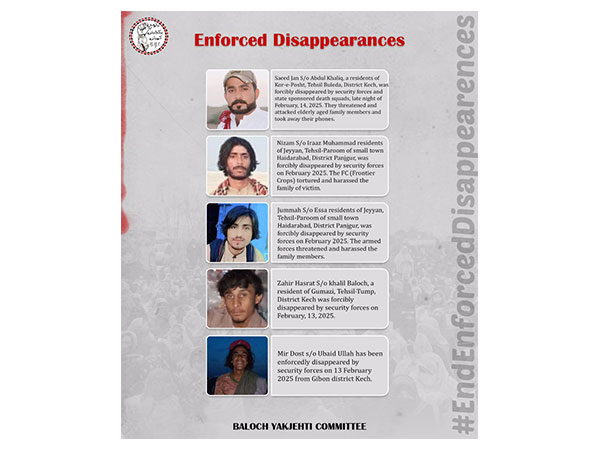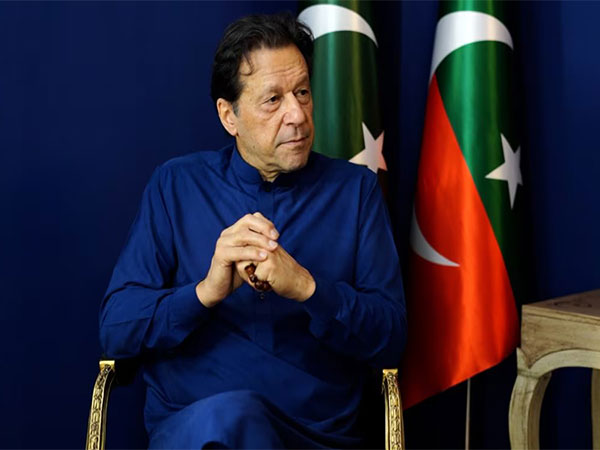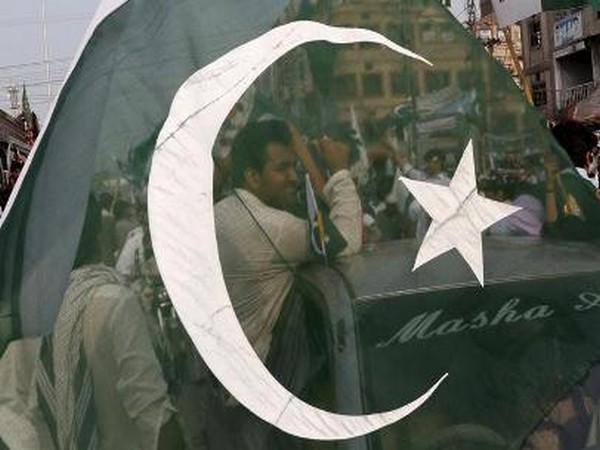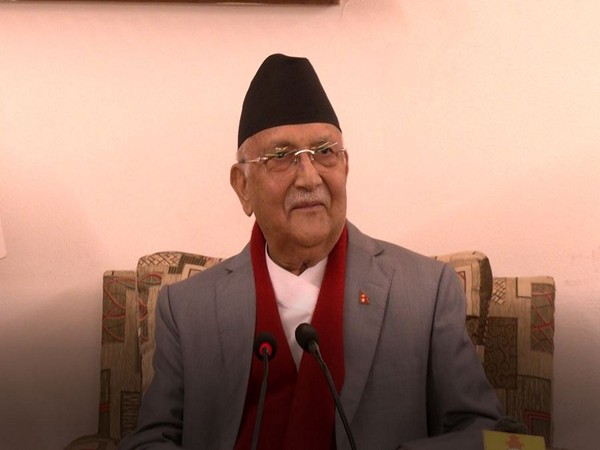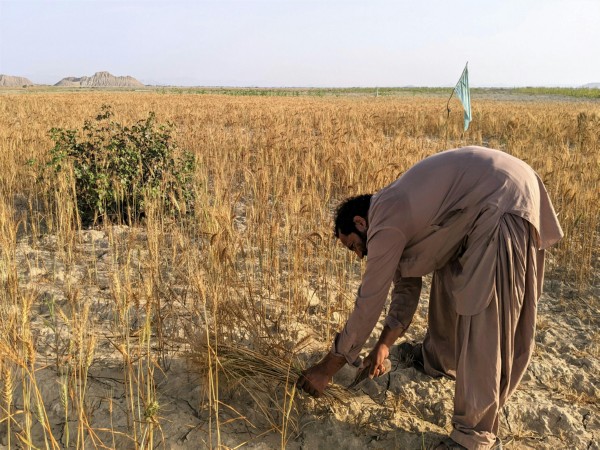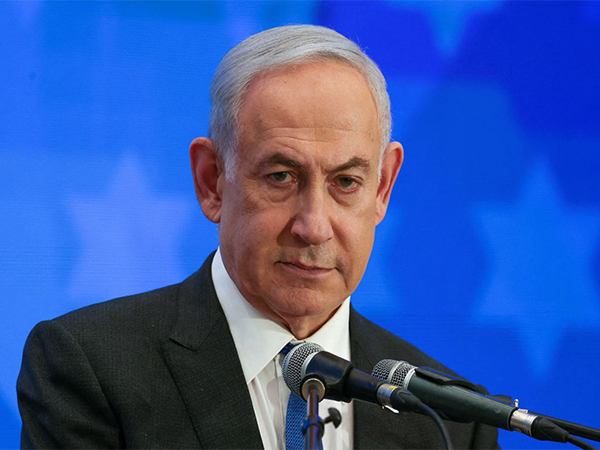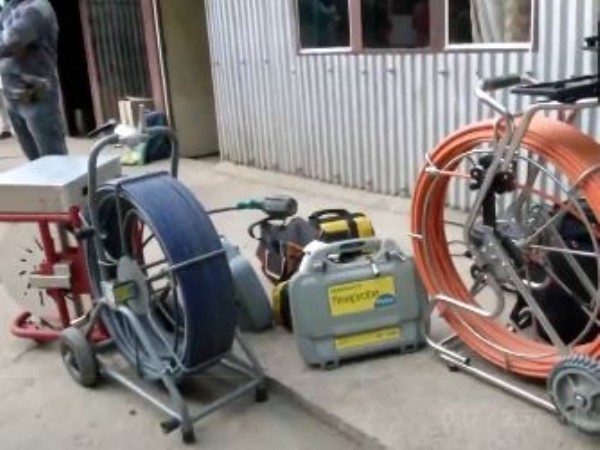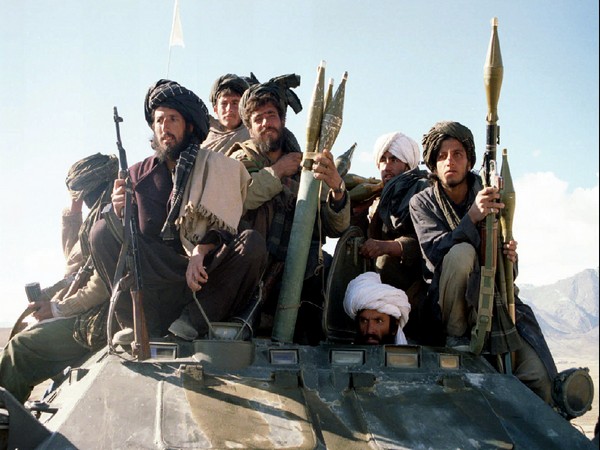
Armed members of Taliban Islamic students' movement sit atop an armoured personnel carrier as they prepare in their forward camp at Sheikhabad in the southeastern Afghan province of Wardak on February 4 to invade the provincial capital Maidan Shahr. Maidan Shahr is the last stronghold controlled by Gulbuddin Hekmatyar's opposition Hezbi Islami party in Taliban's advance from the south to the capital Kabul - PBEAHUMZMBO
Kabul [Afghanistan], August 28 (ANI): Less than a couple of weeks since the Taliban‘s takeover of Afghanistan, the state of affairs in the war-ravaged country, is vastly different from what the outfit had pledged with respect to human rights.
On August 15, Kabul had fallen to the Taliban and since then people are in a state of terror with increasing cases of of human rights abuses being reported from several parts of the country. In recent weeks, the United Nations has received harrowing and credible reports of the impact on civilians of violations of international humanitarian law, as well as violations and abuses of human rights.
“What is happening in Afghanistan is completely opposite to the Taliban‘s pledge of respecting human rights. Women, minorities and children are the worst affected,” said International Forum for Rights and Security (IFFRAS), a non-profit international think tank.
Soon after capturing the capital city, the terrorist group had announced an amnesty for government officials and assured women of basic rights. “However, the past few days have seen women being punished, people from the minority Hazra community being killed and children being subjected to violence,” the IFFRAS report said.
According to Human Rights Watch (HRW), justice for women’s rights offenders in Afghanistan remains elusive and the law that aims to provide legal protection to women is becoming ineffectual as the Taliban makes more territorial gains across the country.
Patricia Gossman, HRW’s Associate Asia Director said that the Taliban, now in power, are obligated to respect the rights of all Afghans, including the right to safely leave one’s country. “But while the Taliban leadership has made promises to protect members of civil society, their fighters relentlessly hunt people down and subject them to an uncertain fate.”
Gossman said that the countries who have supported these activists have a responsibility to evacuate them as long as that is possible. “The women and girls of Afghanistan have earned the right to be heard, to take their place in society openly, as they’ve done behind the scenes for decades, if not centuries.”
Michelle Bachelet, UN High Commissioner for Human Rights earlier this week said the rapid seizure of much of the country, including the capital, by the Taliban has raised grave fears of a return to past patterns of human rights violations, and stoked desperation among many Afghans.
“There are grave fears for women, for journalists and for the new generation of civil society leaders who have emerged in the past years. Afghanistan‘s diverse ethnic and religious minorities are also at risk of violence and repression, given previous patterns of serious violations under Taliban rule and reports of killings and targeted attacks in recent months,” she added. (ANI)







